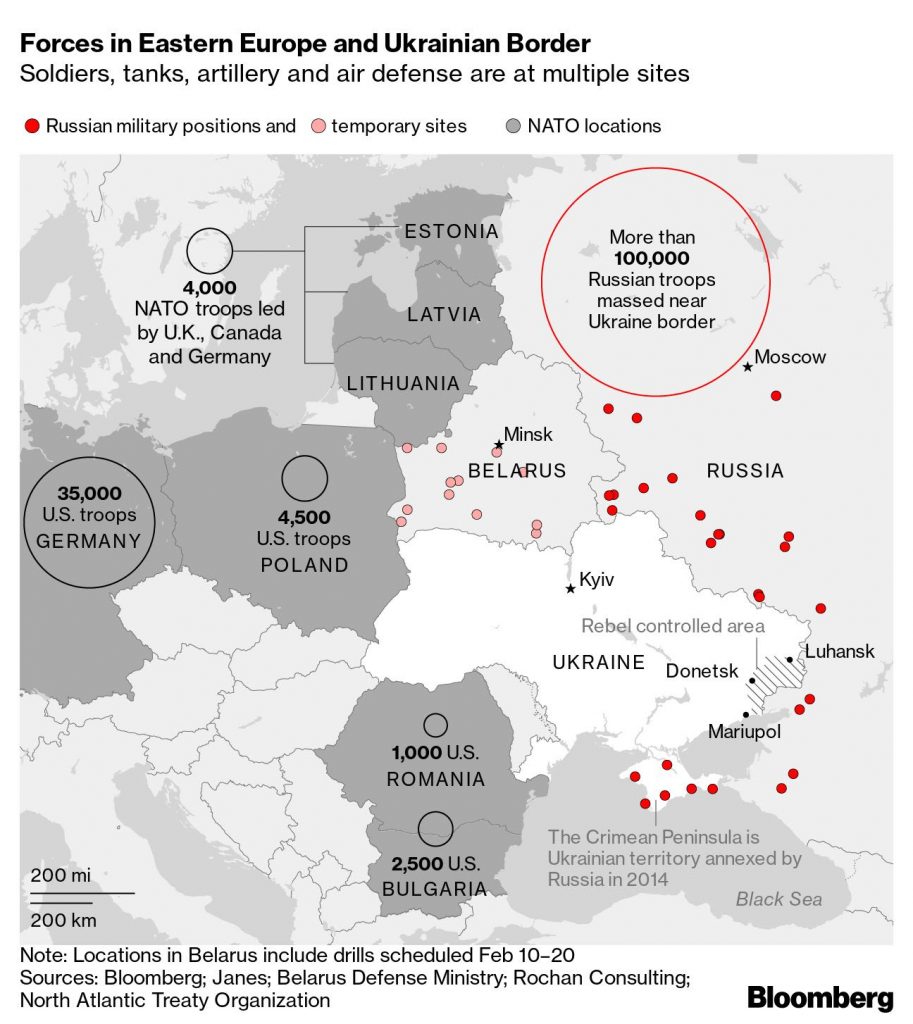The European conflict
Ukraine, a country plagued by a war that has left more than 14,000 dead. One of the largest countries in Europe, since 2014 it has been immersed in a fierce armed conflict in the east of the country. But what is the origin of this conflict?

While the conversation in the financial markets is focused on monetary policy and inflation, the potential for an armed conflict over Ukraine involving Russia remains very real. Investors assume that neither Russia nor the U.S. and its NATO allies will engage in a protracted military confrontation; it would not be in anyone's interest. But, the risk of economic sanctions to punish Moscow, which would have the effect of driving up oil prices, is a different matter.
As a result, Brent crude is now the most expensive since an epic drop in 2014, when the OPEC cartel lost discipline. The strange thing is that the dollar and the price of oil tend to have a strong inverse correlation. All oil transactions are denominated in dollars, so a rise in the price of oil should automatically lead to a fall in the dollar, and vice versa.
Whatever happens in Ukraine over the next few weeks, investors are convinced that the Russian economy is in trouble. Meanwhile, Eastern Europe has managed to avoid being caught up in the latest Russian sell-off. But the region still looks vulnerable if the Ukraine crisis deepens. Stock markets in Russia and Central and Eastern Europe have had a horrible decade.
Ukraine is betting on becoming the world's leading crypto superpower. Now the Russia crisis is scaring investors.



